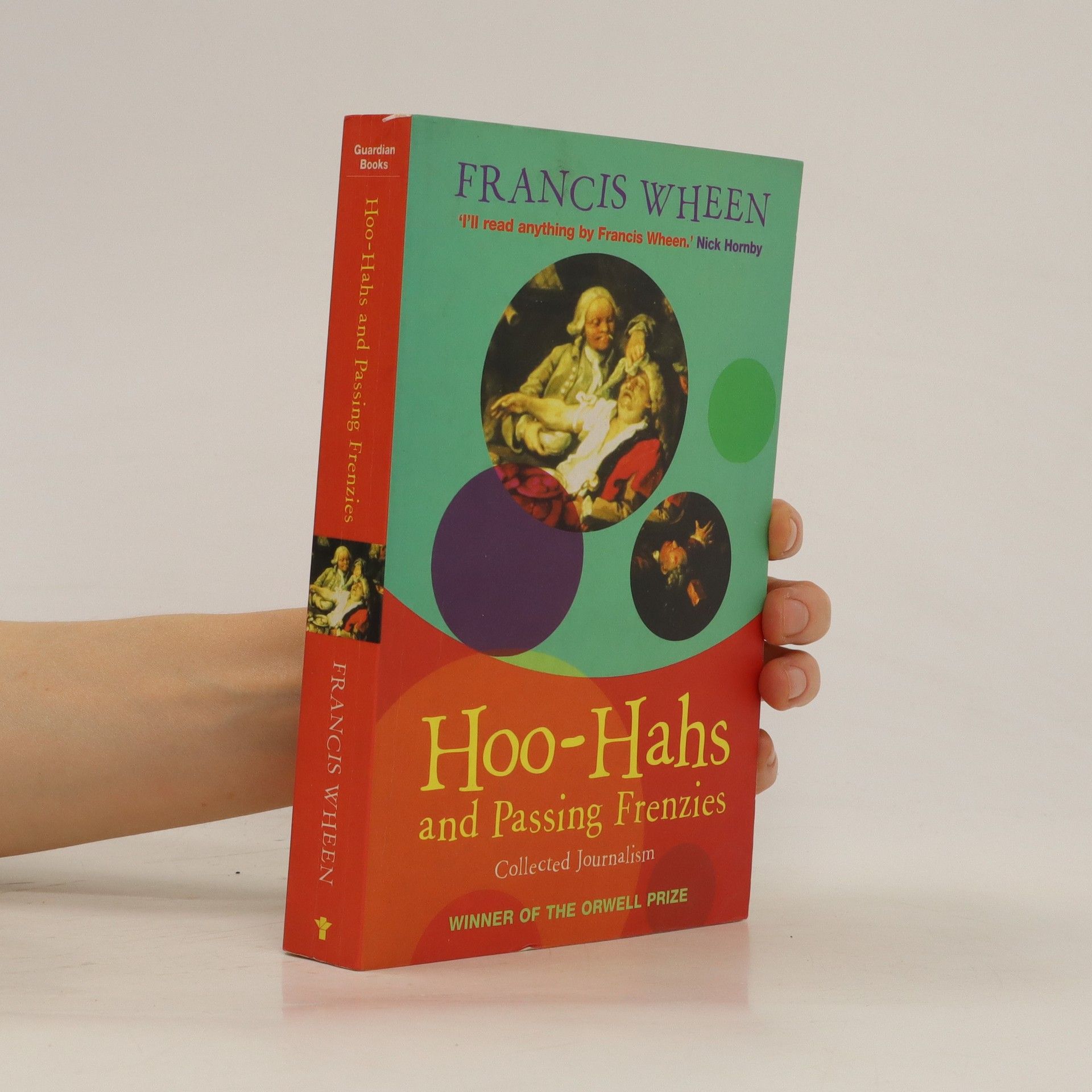Karl Marx
- 510 Seiten
- 18 Lesestunden
Francis Wheen ist ein angesehener britischer Journalist und Schriftsteller, der für seine scharfsinnigen Beobachtungen und seinen geistreichen Witz bekannt ist. Seine Arbeit befasst sich häufig mit politischen und gesellschaftlichen Themen, wobei er einen unverwechselbaren Stil pflegt, der tiefes Wissen mit trockenem Humor verbindet. Wheen verfügt über die Gabe, Absurditäten aufzudecken und Machtstrukturen kritisch zu hinterfragen. Sein Schreiben wird für seine Intelligenz, seine fesselnde Art und seine Fähigkeit geschätzt, sowohl zum Nachdenken anzuregen als auch zu unterhalten.







»Die Macht ist in der modernen Gesellschaft auf den Kapitalisten übergegangen, ob er nun als einzelner Kapitalist auftritt, oder, wie bei Aktiengesellschaften, als kombinierter Kapitalist.« Karl Marx beleuchtete in seinen Schriften scharfsinnig und weitsichtig die Gesellschaft und Wirtschaft seiner Zeit. Sein Hauptwerk Das Kapital wurde zu einem der einflussreichsten Bücher des 20. Jahrhunderts. Es ist eine bis heute grundlegende Analyse des kapitalistischen Systems, die es neu zu entdecken gilt. Aus der Reihe Bücher, die die Welt veränderten: Basistexte der Menschheitsgeschichte - informativ und anschaulich vorgestellt.
Golden Duck's edition of the 1934 bestseller Cheapjack by Margery Allingham's brother, Philip, containsover 30 photographs from the National Fairground Archive, the Allingham Society and other sources. An introduction by FRANCIS WHEEN discuses slumming in the 1930s and describes Cheapjack as an extraordinary autobiography. VANESSA TOULMIN of Sheffield University puts Cheapjack and its language in the context of the secretive society of showmen, hawkers and Gypsy travellers and calls it an important historic record. Margery Allingham's biographer, JULIA JONES, reveals the extent of detective novelist's involvement in Cheapjack and gives the wider story of this naive, eccentric and charming young man.
Francis Wheen has established himself as one of the most brilliant and admired journalists writing in Britain today with his massively acclaimed biography of Karl Marx, his contributions to radio and TV, and his outstanding commentary and analysis. This book brings together the best of his collected journalism from the Guardian, Observer, and magazines such as Esquire and The Modern Review. Ranging from the follies of think-tanks to the future of swearing, the hypocrisy of New Labour to the madness of retired prime ministers, all via shady business deals and scabrous gossip, this is a book that none of Wheen's legion of admirers will want to miss.
What characterizes our era? Cults, quacks, gurus, irrational panics, moral confusion and an epidemic of mumbo-jumbo, that's what. In How Mumbo-Jumbo Conquered the World, Francis Wheen brilliantly laments the extraordinary rise of superstition, relativism and emotional hysteria. From Middle Eastern fundamentalism to the rise of lotteries, astrology to mysticism, poststructuralism to the Third Way, Wheen shows that there has been a pervasive erosion of Enlightenment values, which have been displaced by nonsense. And no country has a more vivid parade of the bogus and bizarre than the one founded to embody Enlightenment values: the USA. In turn comic, indignant, outraged, and just plain baffled by the idiocy of it all, How Mumbo-Jumbo Conquered the World is a masterful depiction of the absurdity of our times and a plea that we might just think a little more and believe a little less.
Okolnosti vzniku a ideový obsah jednoho z myšlenkově nejvlivnějších děl novodobé ekonomické teorie: Marxova Kapitálu. Jiskrný a přístupný text seznamuje s Kapitálem jako knihou, která je na hony vzdálena představě suchého národohospodářského pojednání a blíží se spíše chmurnému gotickému románu, jehož hrdinové se stávají otroky kapitalismu jako obludy, kterou sami přivedli k životu.
«I filosofi hanno solo interpretato il mondo in modi diversi; si tratta ora di trasformarlo», così scriveva Karl Marx nel 1845; e questa è l’essenza del Capitale, veemente e lucida analisi del mondo capitalistico che avrebbe influenzato le vite di milioni di persone e cambiato il corso della storia. Con vividi dettagli, Francis Wheen racconta la ventennale battaglia di Marx per tentare di completare un capolavoro rimasto incompiuto. Il capitale nacque in un appartamento di due stanze a Londra, tra liti politiche e tragedie personali. Il primo volume fu pubblicato nel 1867 e, nonostante i tentativi di attutirne l’enorme impatto, anche dopo la morte di Marx l’opera continuò a influenzare pensatori, scrittori e rivoluzionari, da George Bernard Shaw a Lenin. In questo volume brillante e accessibile, Wheen mostra che Il capitale, lungi dall’essere un’arida dissertazione economica, è simile a un romanzo gotico i cui eroi sono resi schiavi da un mostro che essi stessi hanno creato: il capitale. Per questo, secondo l'autore, fino a che esisterà il capitalismo, ci sarà la necessità di leggere e comprendere il capolavoro di Marx.